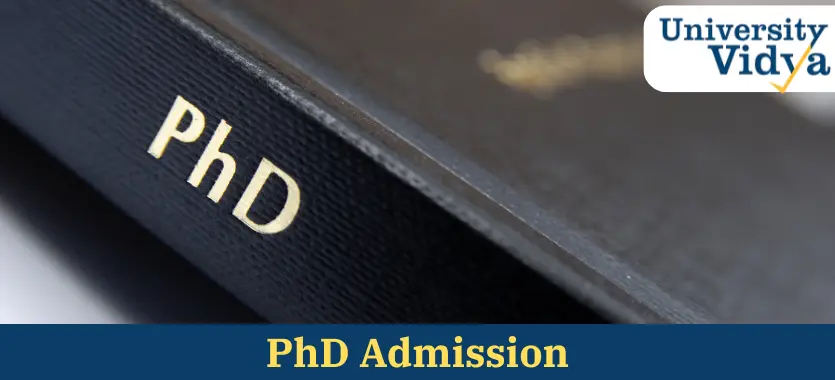


University Vidya welcomes motivated scholars to its Doctor of Philosophy (PhD) programme, a rigorous, research-focused pathway designed to cultivate independent investigators and academic leaders. Our doctoral environment combines expert supervision, interdisciplinary collaboration, and access to contemporary research resources to help you formulate and complete original research that advances knowledge and delivers societal impact.
The PhD at University Vidya is a full research degree that centres on an independent research project under the guidance of a supervisory team.
Candidates may enrol on a full-time or part-time basis (subject to departmental approval). Mode of study, minimum/maximum duration and credit or coursework requirements are set out in the University Vidya PhD regulations.
Applicants should normally hold a relevant Master’s degree (or equivalent) with a strong academic record. Specific eligibility requirements — including minimum marks, equivalence, national qualifying examinations (e.g., UGC-NET / JRF or comparable qualifications) and discipline-specific prerequisites are determined by University Vidya and may vary by school/department.
Prospective candidates are encouraged to contact a potential supervisor or the department with a brief research outline to confirm fit and discuss supervision capacity.
Complete the online application and upload required documentation:
Applications are screened for academic merit, research proposal quality and supervisory fit. Shortlisted candidates progress to the assessment stage.
Assessment typically includes a departmental interview and/or research proposal presentation. Certain disciplines may include a written research aptitude test or subject proficiency evaluation. Interview panels evaluate: originality of the proposal, methodological awareness, feasibility, and candidate readiness for independent research.
Successful candidates receive an offer letter specifying conditions (if any), supervisor allocation and registration instructions. Candidates complete enrolment and orientation processes before commencement.
Admission cycles (intakes), final eligibility thresholds and the exact nature of assessments are governed by University Vidya’s regulations — applicants should consult the official admissions page or contact Admissions for current details.
Funding may be available through:
| Ans: Generally, candidates need a Master’s degree with at least 55% marks (50% for reserved categories). Some universities also require a valid entrance test score like UGC-NET, GATE, or their own exam. |
| Ans: Yes. Many universities conduct their own entrance exams and interviews for PhD admissions, so NET/JRF is not always mandatory. |
| Ans: The minimum duration is 3 years, and the maximum can extend up to 6 years (with possible extensions as per university norms). |
| Ans: Yes. Several universities allow part-time PhD programs for working professionals, provided they fulfill residency and coursework requirements. |
| Ans: Fees vary widely. On average, PhD programs in India cost between ₹50,000 – ₹2,00,000 per year, depending on the university and discipline. |
| Ans: In some cases, yes. Integrated PhD programs allow students with a 4-year bachelor’s degree (as per NEP 2020) or exceptional academic performance to apply directly. |
| Ans: Popular exams include UGC-NET/JRF, CSIR-NET, GATE, ICAR, ICMR, and university-level entrance tests like JNU, DU, BHU, and IIT PhD exams. |
| Ans: Yes. Candidates who qualify for UGC-NET JRF, CSIR-NET, or GATE are eligible for a monthly stipend. Some universities also provide internal fellowships. |
| Ans: Yes. Many universities offer part-time or executive PhD programs for professionals, but candidates must ensure employer consent and meet research requirements. |
| Ans: No. There is generally no upper age limit for pursuing a PhD in India. However, age limits may apply for specific fellowships or scholarships such as JRF. |
From your first step as an aspirant to the grand convocation – we guide you at every milestone.
Copyright © All Rights Reserved by Grow Media Digital